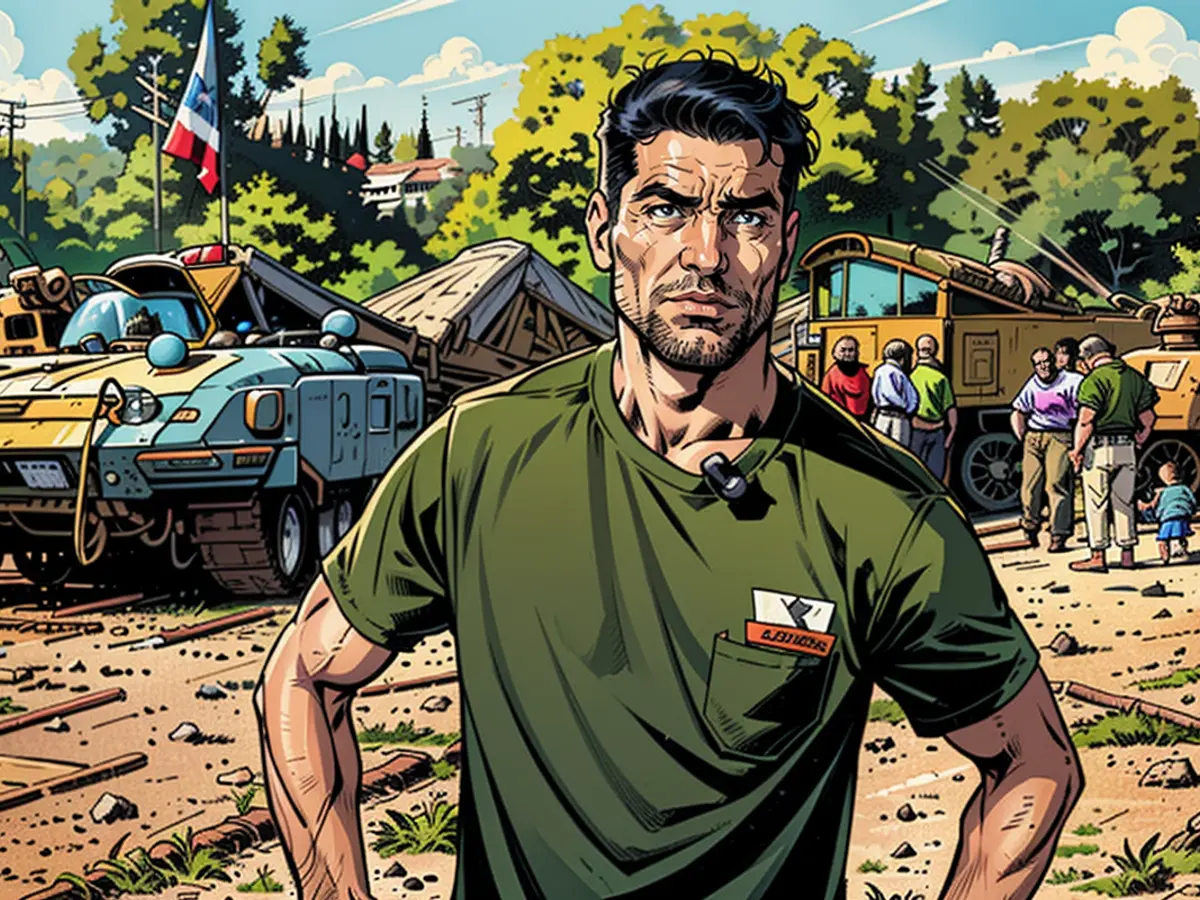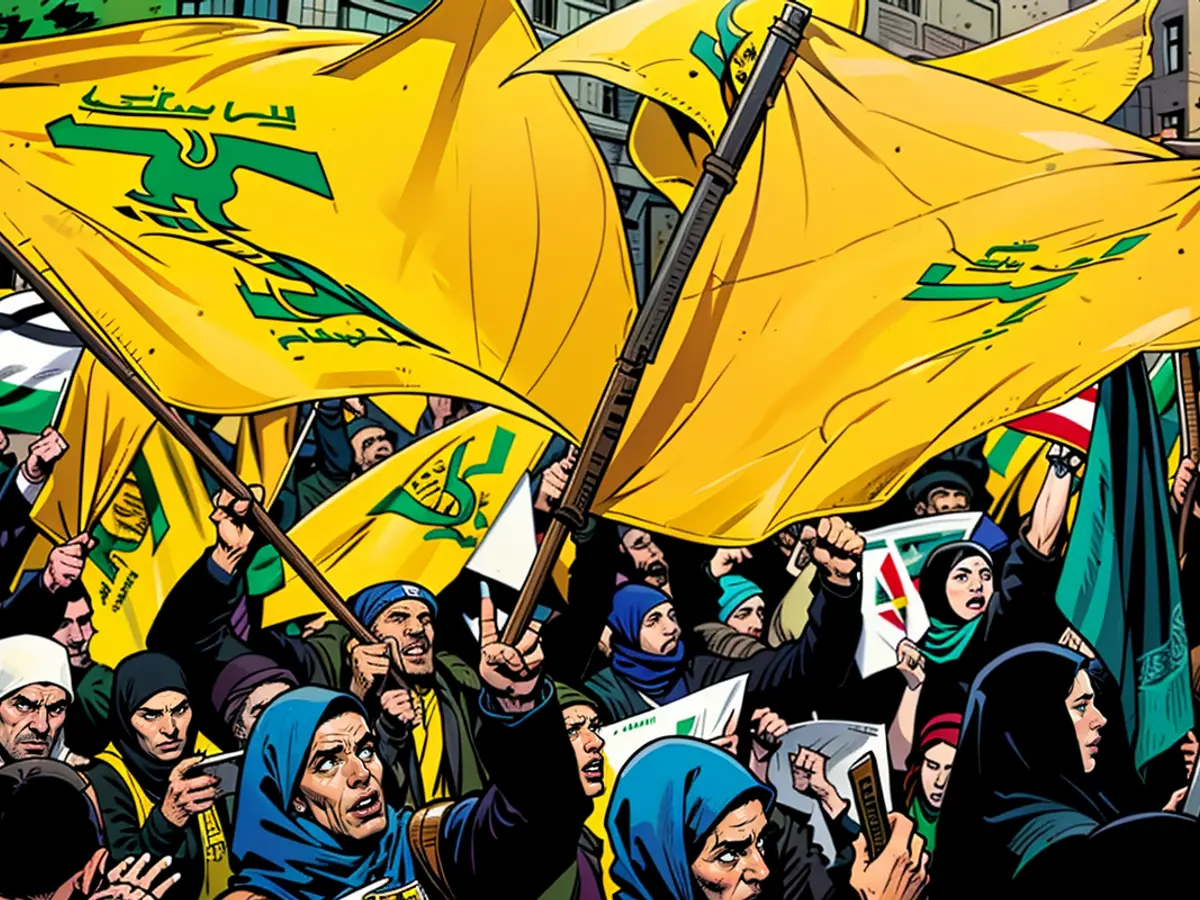Lebanese Militia - The threat from the North: What is Hezbollah?
Rocket Strike on the Golan Heights re-published.
Social movement, political party and radical militia: The Lebanese Hezbollah is not an easy group to grasp. Among the population in Lebanon, the Shia movement enjoyed high esteem for years, but with the attacks and hostage-takings, it has joined the ranks of violent extremist organizations.
Against Israel, Hezbollah, which is allied with Iran and Hamas, has waged war repeatedly. Internationally, there is growing concern that the powerful militia may open a second front against the Israeli army in the war against Hamas.
Radicals unite under "Party of God"
Founded in 1982 during the Lebanese Civil War as a merger of Shia militias, the Hisbollah (Arabic for "Party of God") was central to its founding were the Iranian Revolutionary Guards, who supported the Hisbollah in the following years with trainers and weapons. The Hisbollah's Islamic ideology was also heavily influenced by Iran.
Shortly after its founding, the group drew attention to itself with several devastating attacks on the US embassy in Beirut and international troops in Lebanon. Since then, it has been blamed for a series of other attacks, including the 1994 bombing of the Jewish Cultural Center in Buenos Aires. In the 1980s, the Hisbollah took Western hostages and murdered several of them.
Hezbollah is also controversial in Lebanon
The Hisbollah gained significant support in the impoverished Shia population in the capital Beirut and in South Lebanon through its network of social institutions. In addition, it earned respect from the Lebanese population for forcing the Israeli army to withdraw from Lebanon in 2000.
The Hisbollah has been represented in several cabinets of the government in Beirut, but it is also controversial in Lebanon. Its opponents accuse it of being a prolonged arm of Iran and Syria. The assassination of former Prime Minister Rafik Hariri in 2005, which was allegedly carried out by the Syrian secret service and Hezbollah, caused a deep crisis and forced Syria to withdraw its troops from Lebanon.
The Hisbollah earned much criticism when it intervened on the side of Syrian strongman Bashar al-Assad in the Syrian conflict in 2012. Many Lebanese saw its intervention against the Syrian opposition negatively. Protests in Lebanon in 2020 targeted the Hisbollah, which many blamed for the social misery in the country.
Massive firepower – allegedly up to 200,000 rockets
Militarily, Hezbollah reorganized itself after its war against Israel in 2006 and began "gradually building and improving its military capabilities," according to expert Eva Koulouriotis. The militia is said to now possess up to 200,000 rockets of various ranges, in addition to Soviet Katyusha and Grad rockets and Iranian Shahab rockets. Furthermore, there are Iranian drones, including Shahed-136 drones, which Russia uses in Ukraine. In 2021, Hezbollah itself reported having over 100,000 fighters.
Since the large-scale attack by Hamas on Israel, there have been frequent fights at the southern Lebanon border with Israel, causing international concern about the potential escalation of the war. A second front in the north of the country would be a major problem for Israel. In comparison to Hamas, Hezbollah is "larger, financially stronger, more professional, more battle-hardened, better equipped, and better armed," according to military expert Lucas Webber.
Hezbollah's alliance with Iran and Hamas has resulted in repeated conflicts against Israel. Despite international concerns, there are fears that Hezbollah may open a second front against Israel in support of Hamas.
The Powerful Hezbollah, with alleged access to up to 200,000 rockets, poses a significant threat to Israel, particularly given its military strength and expertise compared to Hamas.
Israel's northern border with Lebanon has seen frequent skirmishes since the Hamas conflict, raising concerns about the potential escalation of a second front involving Hezbollah, significantly more powerful than Hamas.









